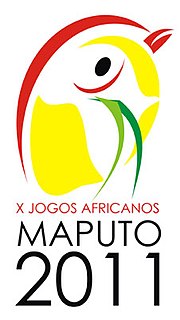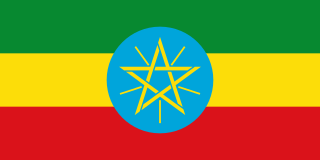
The Commonwealth Games, often referred to as the Friendly Games, are a quadrennial international multi-sport event among athletes from the Commonwealth of Nations. The event was first held in 1930, and, with the exception of 1942 and 1946, have successively run every four years since. The Games were called the British Empire Games from 1930 to 1950, the British Empire and Commonwealth Games from 1954 to 1966, and British Commonwealth Games from 1970 to 1974. Athletes with a disability are included as full members of their national teams since 2002, making the Commonwealth Games the first fully inclusive international multi-sport event. In 2018, the Games became the first global multi-sport event to feature an equal number of men's and women's medal events and four years later they are the first global multi-sport event to have more events for women than men.
The 1968 Summer Olympics, officially known as the Games of the XIX Olympiad and commonly known as Mexico 1968, were an international multi-sport event held from 12 to 27 October 1968 in Mexico City, Mexico. These were the first Olympic Games to be staged in Latin America and the first to be staged in a Spanish-speaking country. They were also the first Games to use an all-weather (smooth) track for track and field events instead of the traditional cinder track, as well as the first example of the Olympics exclusively using electronic timekeeping equipment.
Sports in Malawi have been shaped by its history as a colony in the old British Empire, the most popular sports coming from Britain.

The African Games, formally known as the All-Africa Games or the Pan African Games, are a continental multi-sport event held every four years, organized by the African Union (AU) with the Association of National Olympic Committees of Africa (ANOCA) and the Association of African Sports Confederations (AASC).

The 10th All-Africa Games took place between September 3–18, 2011 in Maputo, Mozambique. Maputo's hosting marked the third time the Games was held in the southern part of the continent.

Malawi competed at the 1984 Summer Olympics in Los Angeles, California, United States. The nation returned to the Olympic Games after boycotting both the 1976 and 1980 Games. Fifteen competitors, all men, took part in sixteen events in three sports.

Botswana competed in the 2003 All-Africa Games held at the National Stadium in the city of Abuja, Nigeria. The team came eleventh overall with eleven medals, nearly half of them in karate.

Tanzania (TAN) has competed at every occurrence of the African Games since its inauguration in 1965. Tanzanian athletes have won a total of 24 medals.

Botswana (BOT) has competed in the last eight African Games, first appearing in 1991. Athletes from Botswana have won a total of 76 medals, including twenty gold.

Togo (TOG) has competed in the nine African Games since taking part in the inaugural Games in 1965. Athletes from Togo have won a total of eighteen medals.

Botswana competed in the 2007 All-Africa Games held at the Stade du 5 Juillet in the city of Algiers, Algeria. The country came ninth with a total of thirteen medals. The team was particularly successful in athletics, winning five gold medals in track and field events as well as beating the continental record in the T46 200 metres sprint.

Namibia (NAM) has competed in the last eight African Games, first appearing in 1991. Athletes from Namibia have won a total of fifty-one medals, including seven gold.

Central African Republic competed in the 2003 All-Africa Games held at the National Stadium in the city of Abuja, Nigeria. The country entered seventeen events, and gained a gold medal in Taekwondo, ranking joint 19th in the medal table.

Democratic Republic of the Congo competed in the 2003 All-Africa Games held at the National Stadium in the city of Abuja, Nigeria. The country sent 86 athletes to compete, including teams to compete in basketball and handball. The team won two medals, including a silver in women's basketball.

Zambia competed in the 2003 All-Africa Games held at the National Stadium in the city of Abuja, Nigeria. The country sent a substantial team which won six medals and came joint twenty-third in the medal table. Amon Simutowe won a silver medal in chess. The team also received five bronze medals, including two in boxing and the team medals in chess and squash.

Mali competed in the 2003 All-Africa Games held at the National Stadium in the city of Abuja, Nigeria. The country’s team won six medals and came joint twenty-third in the medal table. The country competed in the first women’s football tournament in the history of the Games, and came fourth. Bourama Mariko won a silver medal in karate, and the team gained four bronze medals in taekwondo.

Ethiopia competed in the 2003 All-Africa Games held at the National Stadium in the city of Abuja, Nigeria. The team wielded a very strong athletic contingent, which brought back a total of five gold, six silver and four bronze medals. Amongst the gold medal winners were future multiple Olympic gold medal winners Kenenisa Bekele and Meseret Defar. In boxing, the team brought back a silver and two bronze medals. At the end of the event, the team had won a total of twenty medals, the largest number that it had won in the history of the Games, and came eighth overall in the medal table.

Togo competed in the 2003 All-Africa Games held at the National Stadium in the city of Abuja in nearby Nigeria. The team entered twenty five events and came joint thirty first overall with three bronze medals. Medals were awarded in women's discus, men's open singles table tennis, and men's powerlifting.

Guinea (GUI) has competed in the eight African Games. The country first took part in the second games that took place in 1973, when the team won a gold and a silver medla, the latter in football. The country next appeared twelve years later at the event in 1995. Athletes from Guinea have subsequently won a total of eight other medals, including two silver.

Uganda (UGA) has competed in every African Games since the first in 1965. The country has taken part in every one of the games since. Athletes from Uganda have won a total of eighty-seven medals, including twenty-two gold and twenty-one silver.















